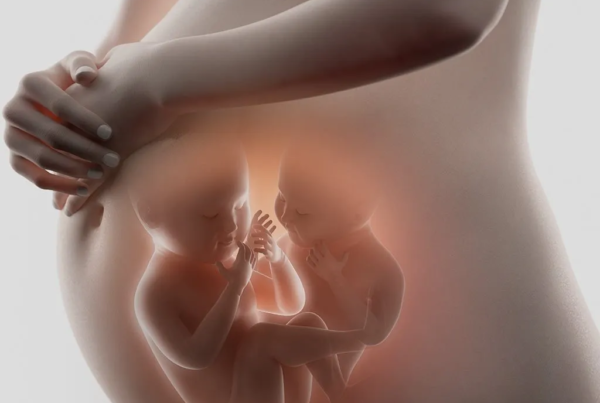If you are challenged by infertility, the expression “risk factor” is one that you are likely to hear quite often. Your risk factor is something that is making you more likely to develop infertility. Some of these risk factors affecting your fertility such as age cannot be changed. Others, such as lifestyle choices can be changed.
Infertility is inability to conceive a child after 12 months (or more) of regular, unprotected sexual intercourse. If a woman is older than age 35, infertility should be evaluated after six months. Infertility may describe both a woman who is having difficulty conceiving as well as a woman who experiences recurrent miscarriages.
Infertility rates have increased over the years. At least 15-20 percent of couples in Nigeria are affected by infertility, mostly due to an increase in the age or the lifestyle of the couples trying to conceive.
As a woman, your fertility gradually declines with age and this decline becomes more pronounced in your mid-30s. As you age, the number and quality of your eggs decrease. If you are a man that is aged 40 and above, you are likely to be less fertile than when you were younger.
When you are trying to conceive, your lifestyle matters. Whether you are overweight or you are too thin, it matters. If you are a man above your ideal weight, your sperm counts and testosterone levels may be lower. You the woman is also at risk of fertility problems if you have an eating disorder like anorexia or follow a very low calorie or very restrictive diet.
If you or your spouse uses tobacco or alcohol it lessens your chance of achieving a pregnancy. It also has a negative impact on how effective any fertility treatment is. The explanation is simple; if you smoke, you are likely to have higher rate of miscarriages and tubal pregnancies. Alcohol and tobacco use can also result in a low sperm count in men.
Not enough exercise contributes to obesity, which increases your risk of infertility. In less common cases, frequent exercise that is strenuous and intense can affect a woman’s ovulation patterns. This can lead to irregular menstrual cycles.
Irregular menstrual cycles could also be a problem if you are underweight, it is therefore important to try to achieve a normal weight via healthy lifestyle changes.
For men, concern has risen about the impact of industrialization on reproductive health. This concern stems largely from reports that show that semen quality of men appears to be on the decline and certain environmental factors may be implicated in this semen quality decline that may affect reproductive health.
One issue is the exposure to environmental agents which could have a toxic effect on sperm quality. The environmental toxins can be physical, chemical, occupational and lifestyle factors. The physical factors may include hyperthermia (increased temperature), radiation and electromagnetic fields.
Chemical causes include cigarette smoking and excessive alcohol consumption that we mentioned earlier. Also, the use of hard drugs such as marijuana and cocaine is a big risk to your fertility.
As a man, you are also at risk of occupational hazards such as some pesticides, industrial toxins like dioxin, and exposure to heavy metals that are all linked to infertility. A stressful lifestyle can also play a role. Unfortunately, it is difficult to make recommendations on how to prevent exposure to many of these toxins because their sources are common.
Your major infertility risk factor as a woman, specifically, is your age. Maternal age is probably the most significant factor related to a woman’s ability to conceive. While many women today are waiting to become pregnant, the ovary’s ability to produce normal, healthy eggs declines with age, increasing the risk of chromosomal abnormalities and unsuccessful implantation and pregnancy.
As stated earlier, the likelihood of successful pregnancy begins to decrease in the early 30s. While this decline is initially quite minimal, as years pass, the rate of decline in fertility increases and begins to rapidly accelerate around 37 to 38 years of age, with an acute fall beyond 40 years of age.
This, however, is not to say that at 40, 41, or 42 you cannot conceive. Because of the importance of maternal age, it is recommended that once you are over 35 you should pursue a fertility evaluation once you have been trying to conceive for six months.
Couples under 35 should consider an evaluation if conception does not occur after trying for a year. Other factors, such as endometriosis or uterine fibroids, can also play a role in infertility, though many women with these conditions conceive healthy children without trouble.
Weight is a significant risk factor for women. If you are overweight, you are likely to have decreased fertility and an increased risk of miscarriage. It is important to maintain healthy body weight, with a body mass index (BMI) between 20 to 25, and to live a healthy lifestyle. Extremities in diet and exercise are to be avoided.
To improve fertility, you can do a lot. You can begin by maintaining a healthy weight and avoiding extreme diets. Stay away from illicit drugs and tobacco, consume alcohol in moderation, or avoid it entirely and get regular exercise at a moderate level of intensity. Avoid medicines that may affect fertility; check with your health care provider.





